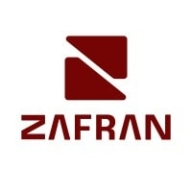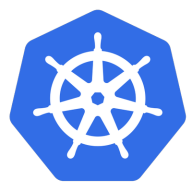


Check Point CloudGuard CNAPP and Kubernetes are competitors in the cloud security and container orchestration markets, respectively. Check Point CloudGuard CNAPP holds an advantage due to its robust security features and detailed threat detection capabilities.
Features: Check Point CloudGuard CNAPP offers comprehensive security features including centralized visibility, detailed asset management, and real-time threat detection. It excels in providing predictive visualization and posture management. Kubernetes is known for its strengths in container orchestration, scalability, and integration across multiple platforms. It significantly aids in rapid application development and deployment flexibility.
Room for Improvement: Check Point CloudGuard CNAPP should focus on improving integration with more cloud providers and enhancing user experience in policy validation. Faster support response times and updated technical documentation are recommended. Kubernetes would benefit from simplifying its dashboard interface and improving support for on-premises deployments. Greater user-friendly configurations and advanced management tools could enhance its appeal.
Ease of Deployment and Customer Service: Check Point CloudGuard CNAPP is optimized for cloud environments, providing structured support but needs better responsiveness. Kubernetes offers versatility in deployment across multiple cloud types, yet requires specialized knowledge for setup. It taps into extensive community support, which aids its basic support structure.
Pricing and ROI: Check Point CloudGuard CNAPP is often more costly, justified by its advanced security features and integration capabilities, offering significant ROI in security prevention. Kubernetes, being open-source, incurs no licensing costs, making it an economical choice for large-scale operations, though additional services and support might increase expenses. Its economic benefits arise mainly from operational efficiency and scalability.
| Product | Market Share (%) |
|---|---|
| Check Point CloudGuard CNAPP | 1.3% |
| Wiz | 10.5% |
| Tenable Nessus | 7.3% |
| Other | 80.9% |
| Product | Market Share (%) |
|---|---|
| Kubernetes | 6.2% |
| Red Hat OpenShift Container Platform | 19.5% |
| Amazon EKS | 11.9% |
| Other | 62.4% |



| Company Size | Count |
|---|---|
| Small Business | 51 |
| Midsize Enterprise | 17 |
| Large Enterprise | 57 |
| Company Size | Count |
|---|---|
| Small Business | 25 |
| Midsize Enterprise | 9 |
| Large Enterprise | 47 |
Zafran Security integrates with existing security tools to identify and mitigate vulnerabilities effectively, proving that most critical vulnerabilities are not exploitable, optimizing threat management.
Zafran Security introduces an innovative operating model for managing security threats and vulnerabilities. By leveraging the threat exposure management platform, it pinpoints and prioritizes exploitable vulnerabilities, reducing risk through immediate remediation. This platform enhances your hybrid cloud security by normalizing vulnerability signals and integrating specific IT context data, such as CVE runtime presence and internet asset reachability, into its analysis. No longer reliant on patch windows, Zafran Security allows you to manage risks actively.
What are the key features of Zafran Security?
What benefits can users expect from Zafran Security?
In industries where security is paramount, such as finance and healthcare, Zafran Security provides invaluable protection by ensuring that only exploitable vulnerabilities are addressed. It allows entities to maintain robust security measures while allocating resources efficiently, fitting seamlessly into existing security strategies.
Check Point CloudGuard CNAPP offers comprehensive cloud security with features like dynamic access control, asset protection, and compliance checks, tailored for organizations seeking enhanced governance across AWS, Azure, and GCP platforms.
Check Point CloudGuard CNAPP provides robust capabilities, including centralized firewall management, IAM scanning, and real-time visibility. Its strengths lie in predictive visualization, threat intelligence, and auto-remediation, making it a valuable tool for risk mitigation and compliance management. The platform's integration and responsiveness enhance cloud security, ensuring alignment with industry standards and effective threat protection.
What are the key features of Check Point CloudGuard CNAPP?Organizations in finance, healthcare, and retail frequently implement Check Point CloudGuard CNAPP for compliance and security across cloud environments. It assists with workload protection, threat detection, and regulatory obligation fulfillment, proving effective for securing applications and monitoring API interactions.
Kubernetes (K8s) is an open-source system for automating deployment, scaling, and management of containerized applications.
It groups containers that make up an application into logical units for easy management and discovery. Kubernetes builds upon 15 years of experience of running production workloads at Google, combined with best-of-breed ideas and practices from the community.
We monitor all Vulnerability Management reviews to prevent fraudulent reviews and keep review quality high. We do not post reviews by company employees or direct competitors. We validate each review for authenticity via cross-reference with LinkedIn, and personal follow-up with the reviewer when necessary.